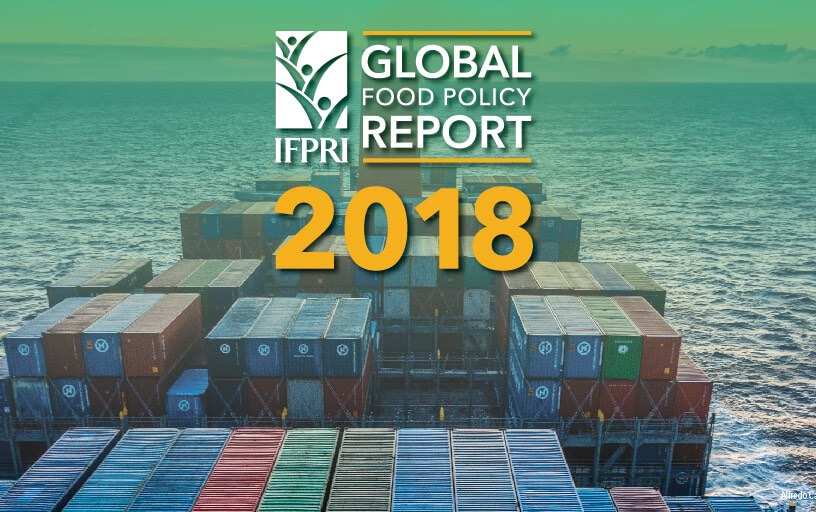International investments in agriculture have the potential to offer a broad range of social, economic, and environmental impacts. As a development tool, they can create jobs; provide rural infrastructure; connect smallholders to global markets; introduce new productivity-enhancing technologies; and improve access to finance for farmers. Close partnerships between international investors and national governments are key, however, to ensure that new outside funds sources do not distort local markets or leave local producers and smallholders at a disadvantage.
As outlined in detail in Chapter 4 of the 2018 Global Food Policy Report, international investment can be a tool for improving food security by enhancing food availability and stability of supply. Increased funds from international investments can help enhance the production of staple crops for domestic consumption, or by shoring up other segments of a country’s domestic agricultural value chain and greater calorie consumption. (We will discuss these issues at a launch event in Geneva on Monday, April 16.)
Sustainable investments can also enhance food security indirectly, through rising rural incomes, which may also improve access to more nutritious diets and improved food utilization. A five-year field research study on the impact of more agribusiness investments in Africa and Asia found the main positive impact of international investments on local food security was increased access to more nutritious diets.
Collaborative investments between governments and international partners may also help increase access to technology and improve rural infrastructure. The same study showed that training, where provided, helped boost local smallholders’ productivity and incomes. Infrastructure development can provide producing regions greater access to urban centers, which creates new avenues for rural development. In addition, the participation of international agribusinesses can also impact existing norms for quality control, food standards, and consumption patterns that can lead to improved food utilization and nutrition in host developing countries.
While these benefits are considerable, international investments can create negative outcomes when not carefully implemented with local input. Some large-scale investment models have raised issues of human rights violations, environmental degradation, and market distortions. In some cases, large-scale, land-based investments that require relocation of people have displaced people and disrupted local value chains. Cultural disruptions are also possible, as unhealthy food consumption patterns, such as higher consumption of processed foods that are less nutritious than traditional diets, may be adopted in developing countries.
To avoid these potential pitfalls and ensure a positive overall impact on food security, international investments must be aligned with broader national development strategies.
Domestic policies in developing countries play a critical role in this process, in creating an environment to attract the most favorable investments and establishing frameworks for screening them. Governments can promote investments in the most remote and food insecure areas by providing fiscal, financial, or technical support, conditional on an investment’s impact on sustainable development. Improving physical infrastructure and digital connectivity can make investments in those most remote and vulnerable areas more viable, and increase the benefit local farmers witness.
In selecting investors, governments must be judicious about protecting the rights and interests of their citizens. Screening should verify that a proposed investment aligns with national food security strategies and that the investor takes its social and environmental responsibilities seriously.
International investors too, have a role to play in orienting their investments towards improved food security. Technological advancements can come at the detriment of smallholders who lack the physical or technical capacity to adapt or remain competitive so investors should provide support to small-scale producers through training, provision of inputs, and access to finance to safeguard their access to advancements.
Investment in agriculture will never be sufficient to achieve the global targets for sustainable development alone, but the right policies can leverage international investments to provide the maximum social, economic, and environmental benefits while minimizing risks.
Shelleka Darby is an IFPRI Communications Intern. James Zhan is Director of Investment and Enterprise at the United Nations Conference on Trade and Development (UNCTAD). William Speller is Economist in Investment and Enterprise at UNCTAD. Hafiz Mirza is Professor of International Business and Strategy at the Henley Business School, University of Reading, UK.







